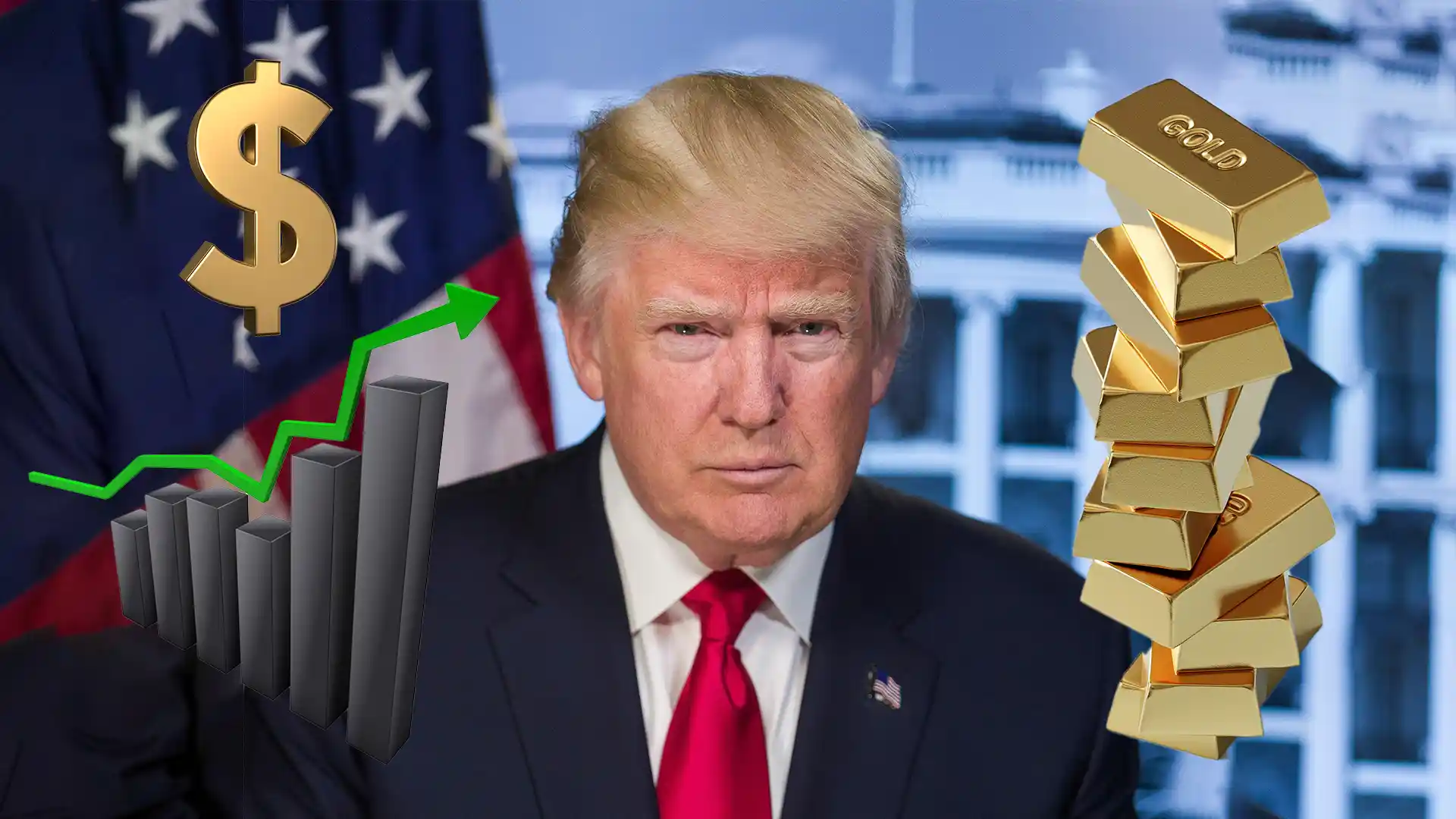Table of contents
Gold Price News: Downward trend, Ukraine crisis and new balance of power in Syria
Dr. Mathias Kunze
Senior Consultant in Commercial and Tax Law
8 min.
Published on: 13.12.2024 | 20:33 UTC
Updated on:
17.12.2024 | 11:26 UTC

Today's gold price and important market developments from 13.12.2024 in the live ticker
Source: ChatGPT (OpenAI)
Gold price at USD 2,648 - Downward trend continues
The price of gold fell to USD 2,648 per troy ounce today. This downward movement reflects the continued strength of the US dollar and the caution of many investors. While geopolitical uncertainties such as the escalations in Ukraine and the Syrian conflict continue to play a significant role, macroeconomic factors are currently dominating the market. Analysts are keeping a close eye on the market, as geopolitical tensions could potentially provide new impetus. At the same time, expectations of a possible tightening of monetary policy and growing demand for US government bonds are weighing on the price of gold.
Treason in Kiev: 14 years in prison for cooperation with Russia
A Ukrainian court has sentenced a woman from Kiev to 14 years in prison. She was accused of actively supporting the attack on Ukraine by sending a letter to the Russian secret service. The letter was cited by Russia's UN ambassador Vasily Nebenzia in February 2022 to justify the invasion. The convicted woman, in her capacity as head of a human rights organization, claimed in her letter that the Ukrainian people supported the Russian “special operation”. The prosecutor's office emphasized that the letter contained false information and was part of a disinformation campaign intended to legitimize the Russian attack.
Russian attacks curb Ukrainian nuclear power plants
Following a massive air attack by Russia on Ukraine's energy system, several Ukrainian nuclear power plants have again had to reduce their output. According to the International Atomic Energy Agency (IAEA), five out of nine reactors are affected. The attacks with over 90 missiles and almost 200 drones did not directly damage any reactors, but did lead to voltage fluctuations and hits on power lines and substations. The power plants in Rivne, Khmelnytskyi and southern Ukraine, which are under Ukrainian control, were affected. The strain on the energy system exacerbates the challenges for Ukraine in the middle of winter, as the power grid becomes increasingly unstable.
Ukraine does not consider itself ready for negotiations with Russia
The Ukrainian President's Chief of Staff, Andriy Yermak, has made it clear that Kiev is currently unable to conduct negotiations with Russia. According to him, Ukraine lacks the necessary means and guarantees to enter into a dialog. In particular, the lack of modern weapons and equipment is a major obstacle. In addition, Ukraine is demanding clear security guarantees to prevent another attack by Russia in the future.
Another of Kiev's key concerns is admission to NATO. Without this step, the Ukrainian government believes its long-term security is at risk. However, Russia is firmly opposed to Ukraine joining NATO. President Vladimir Putin has also stressed that Kiev must recognize the Kremlin's annexation of four Ukrainian regions.
Russia's demands and Ukraine's intransigence show how deeply rooted the conflict is. As long as these fundamental differences remain, a diplomatic solution seems a long way off. Geopolitical tensions therefore remain high, further exacerbating the economic and humanitarian challenges in the region.
Kremlin praises Trump's rejection of US weapons against Russia
The Russian government has responded positively to the latest statement by US President-elect Donald Trump. Trump had stated that he firmly rejects the use of long-range US missiles against Russian territory. Kremlin spokesman Dmitry Peskov emphasized that this position is fully in line with the views of the Russian leadership. Russia has always warned that the delivery and use of such weapons could escalate the conflict and minimize the chances of a diplomatic solution.
Despite agreeing with Trump's statements, Peskov made it clear that the conditions for peace talks were still not met. Moscow continues to demand recognition of the annexation of the four Ukrainian regions as well as guarantees that Ukraine will not join NATO. Without these concessions, Russia sees no basis for negotiations.
Experts see Trump's statements as a possible shift in US policy towards Russia. However, it remains uncertain whether this will lead to a relaxation of tensions. The gap between the positions of the two countries remains wide. The Ukraine conflict therefore remains a geopolitical flashpoint that continues to shape international relations and stability in Europe.
Arrest of a supporter of Russian hacker group in Germany
A suspected supporter of the Russian hacker group “KillNET” has been arrested in Germany. The 24-year-old suspect from Schleswig-Holstein is said to have provided the infrastructure for cyber attacks used by the group. The Hessian State Criminal Police Office announced that the man is accused of supporting a criminal organization abroad and committing computer sabotage.
The hacker group “KillNET” is considered a supporter of Russia and has been responsible for numerous cyber attacks over the past two years. The group's targets include NATO countries and critical infrastructures. The attacks include data theft, cyber sabotage and server overload attacks. According to investigators, the suspect is said to have made the attacks possible by providing the technical infrastructure.
The arrest is seen as a significant success in the fight against cybercrime. It underlines the challenges posed by state-supported hacker activity. With the increasing shift of conflicts to the digital space, combating such groups is becoming a central task for security authorities worldwide.
US government approves further military aid package for Ukraine
The outgoing US administration under President Joe Biden has approved a further extensive military aid package for Ukraine. According to the US State Department, the package amounts to 500 million US dollars and includes ammunition for Himars precision missile launchers, artillery ammunition, drones, armored vehicles and equipment to protect against chemical, radiological and nuclear attacks.
Secretary of State Antony Blinken explained that the aid will be delivered from US military stocks. This new package is in addition to a recently announced aid package worth 988 million US dollars. These measures are intended to further strengthen Ukraine's defense capabilities against ongoing Russian aggression.
Military support for Ukraine remains a central component of US foreign policy. Despite the imminent change of power in the White House, this aid package underlines the outgoing administration's determination to continue to actively support Ukraine. However, experts expect that President-elect Donald Trump may take a different approach to the conflict.
Russia prepares to withdraw from Syria
Following the fall of Syrian ruler Bashar al-Assad, Russia is apparently planning to withdraw its troops from Syria. According to reports, the military bases in Latakia and Tartus, which are considered important strategic outposts for Russia, will be completely evacuated. These bases previously served not only to secure Russian interests in Syria, but also as logistical hubs for operations in Africa.
Security analyses suggest that although the new rulers in Syria have given Russia security guarantees, these only include the complete withdrawal of Russian troops. The change of power in Damascus therefore not only marks the end of Assad's rule, but also a decline in Russian influence in the Middle East.
Russia's withdrawal is seen by experts as an attempt to focus on other geopolitical challenges. At the same time, it remains unclear how the remaining power structures in Syria will influence regional stability. Observers assume that other players such as Turkey and Iran could now attempt to fill the resulting power vacuum.
UN calls for release of prisoners and justice in Syria
The United Nations is urging the immediate release of the many prisoners still being held in Syrian detention centers. According to Geir Pedersen, the UN Syria envoy, reports from inmates about the conditions in prisons under the Assad regime show the “unimaginable barbarity” to which many Syrians were subjected. Despite the release of some prisoners after the fall of the regime, countless men, women and children remain arbitrarily detained.
In recent years, the UN Commission of Inquiry has collected extensive evidence of crimes and compiled secret lists of around 4,000 alleged perpetrators. These are to be brought to justice in order to come to terms with the crimes committed during the Assad era and bring justice to the victims.
The demand for a comprehensive investigation into the conditions of detention and the legal prosecution of the perpetrators is supported by many human rights organizations. Observers see this as an important step towards Syria's transition to a constitutional state, which is intended to create stability and justice after decades of oppression.
Israel destroys Syrian air defenses and secures weapons stockpiles
The Israeli armed forces have carried out massive attacks on Syrian military targets in recent days, destroying more than 90 percent of known Syrian surface-to-air missiles. These missiles were a key component of Syria's air defense, which was considered one of the strongest in the Middle East. In addition, strategic weapons, including surface-to-surface missiles and drones, were severely damaged.
According to the Israeli army, the attacks were intended to prevent these weapons systems from falling into the hands of the victorious Islamist fighters in Syria. Israel's defense strategy is aimed at ensuring security at home and eliminating potential threats at the border.
However, the attacks have met with international criticism. The United Nations and other organizations accuse Israel of violating international law through these operations. Despite the criticism, the Israeli government emphasized that the attacks were necessary to maintain regional stability and prevent the transfer of weapons to extremist groups.
Macron backs François Bayrou as new prime minister
Following the resignation of Michel Barnier, French President Emmanuel Macron has appointed François Bayrou as the new Prime Minister. The 73-year-old politician is considered a long-time confidant of Macron and faces the challenge of overcoming the political crisis and economic imbalance in France. Bayrou, leader of the Democratic Movement (MoDem), is an experienced politician and is considered a representative of the political center.
In his inaugural speech, Bayrou made it clear that the country's situation is extremely tense. In addition to the pressing budget problems that led to the fall of his predecessor, he also sees tackling the climate crisis as a key task. “We are facing a Himalaya of challenges,” explained the new prime minister.
However, Bayrou is not off to an easy start. The opposition and parts of the Left Party are already threatening a vote of no confidence. Critics accuse him of continuing Macron's policies without striving for real change. France's political landscape remains tense, as neither Macron nor Bayrou currently have a stable majority in the National Assembly.
Renewed rocket fire from the Gaza Strip on Israel
Israel has once again been the target of rocket attacks from the Gaza Strip. According to the Israeli army, two rockets were fired at villages near the border with the Gaza Strip. Air-raid sirens sounded and residents sought shelter in bunkers. Both projectiles were intercepted by the defense system, the military reported. So far there is no information about possible damage or injuries caused by falling debris. Rocket attacks from the Gaza Strip have become less frequent in recent months. Nevertheless, the situation remains tense as the conflict between Israel and militant groups in Gaza continues to flare up. The Israeli government sees these attacks as an ongoing threat to the security of its population and has announced that it will continue to take decisive action against such attacks.
G7 states reaffirm support for ceasefire in the Gaza Strip
The Group of Seven (G7) leading industrialized nations have issued a joint statement reiterating their support for a ceasefire in the Gaza Strip. The statement, issued by G7 Chairperson-in-Office and Italian Prime Minister Giorgia Meloni, emphasizes the importance of stabilizing the situation in Gaza.
The G7 emphasize that the ceasefire is an important step towards peace. It should enable the release of all Israeli hostages as well as increased humanitarian aid for the affected civilian population in the Gaza Strip. In the long term, the G7 is committed to a two-state solution that guarantees equal rights and security for Israelis and Palestinians.
The G7 states call on the parties to the conflict to support current efforts and avoid further violence. The declaration underlines the determination of the international community to promote peace in the region and find a sustainable solution to the long-standing conflict.
Blinken's unannounced stop in Iraq for Syria consultation
US Secretary of State Antony Blinken has made an unexpected stopover in Iraq during his Middle East trip to discuss the situation in Syria. At a meeting with Iraqi Prime Minister Mohammed al-Sudani in Baghdad, Blinken reaffirmed the US commitment to the strategic partnership with Iraq and support for a peaceful solution to the crisis in Syria.
Al-Sudani emphasized Iraq's willingness to support the reconstruction of Syria and called for an end to any attacks on Syrian territory. He also alluded to the recent Israeli airstrikes. For his part, Blinken emphasized that the US wants to promote an inclusive transitional government in Syria that includes all population groups and ensures long-term stability.
Blinken's trip is his twelfth to the region since the conflict in the Gaza Strip began. The fall of Bashar al-Assad and the current distribution of power in Syria are the focus of the talks. His goal remains to promote security and stability in the region and to mobilize the support of the international community for the reconstruction of Syria.
Technical analysis: Gold price in a consolidation phase
The gold price is currently trading at USD 2,648 per troy ounce and continues to show signs of a consolidation phase. After the recent downward movement, the price is at a critical support level. Technical indicators such as the Relative Strength Index (RSI) suggest that the market is oversold and that a short-term recovery may be in the offing. The RSI is currently hovering just above the 30 mark, a typical signal for an imminent upward correction.
Resistance levels are at USD 2,670 and USD 2,690, while the next important support level is at USD 2,630. Should the price fall below this level, a downward movement towards USD 2,600 could be initiated. On the other hand, a rise above the resistance level at USD 2,670 could pave the way for a move towards USD 2,700.
Volatility remains low, which indicates a wait-and-see attitude on the part of market participants. However, geopolitical events such as developments in Syria and Ukraine could lead to larger movements in the short term. Investors should keep an eye on both fundamental drivers and technical indicators in order not to miss potential entry or exit opportunities.
Market outlook: Uncertainties and economic data influence the gold market
The gold price remains in a consolidation phase for the time being, but several factors could cause movement in the coming days. Geopolitical tensions, particularly developments in Syria and the ongoing conflicts in Ukraine, are increasing demand for safe investments such as gold. At the same time, the robust performance of the US dollar and uncertainty about future US policy under President-elect Donald Trump are dampening the upside potential.
Donald Trump's return to the White House could lead to a realignment of US foreign and economic policy in the medium term, which will have an impact on the global financial markets. Analysts expect that Trump's announced measures, such as increasing the national debt and possible changes to interest rates, could affect both inflation and gold prices.
On the economic side, the upcoming inflation and labor market data could provide important clues for the markets. If inflation remains high, investors could increasingly turn to gold to hedge against losses in purchasing power. At the same time, further interest rate hikes by the US Federal Reserve could weigh on the gold price.
The outlook remains volatile - with opportunities and risks for investors. The focus should be on developments in the Middle East, new economic data and political changes in the US. The next few days could be decisive in determining whether gold ends its consolidation phase and shows a clear trend.
Dr. Mathias Kunze
Senior Consultant in Commercial and Tax Law
Blog

All-time high: Gold price breaks through USD 3,000 for the first time

Gold in industry: A detailed analysis of its interactions with halogens and in cyanide solutions







